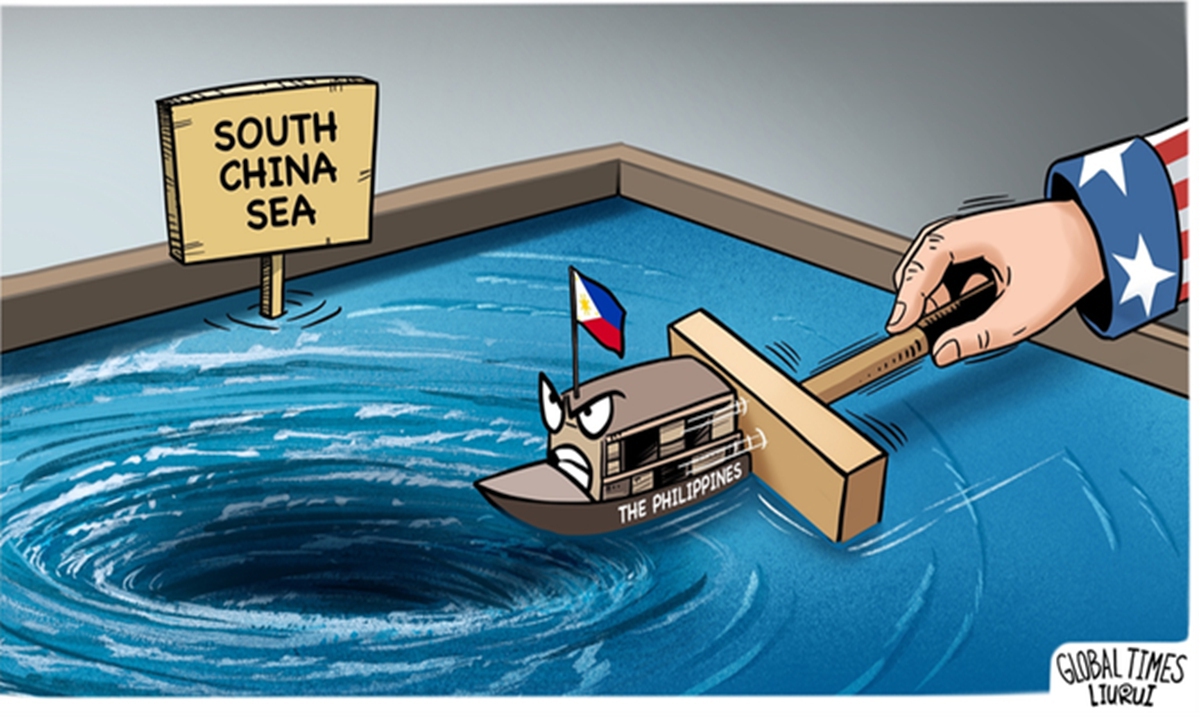China will not allow 'inviting wolves into the house,' says Chinese lieutenant general in response to Marcos Jr. Shangri-La speech

Lieutenant General He Lei Photo: Courtesy of He
Philippine President Ferdinand Marcos Jr. said on Friday that the presence of the US was "crucial to regional peace," as his country faces what it perceived as growing Chinese pressure in waters off its coastline. In response, the Chinese delegation said that the Philippines' assertion of upholding peace and stability in the South China Sea rings hollow, while displaying enthusiasm for participating in bloc confrontations holds true.
Speaking at the opening of the Shangri-La Dialogue in Singapore, an annual major security forum, Marcos Jr. said that the Philippines and other Southeast Asian countries had a vision for "peace, stability, and prosperity" in the South China Sea, but that this was being undermined by other actors, without naming China.
"I have a question for the Philippines - What is the relationship between ASEAN Centrality and US leadership in the Asia-Pacific region? Which is more important, ASEAN or the Squad?" Lieutenant General He Lei asked during a following press conference Friday. He is a member of the PLA delegation to the Shangri-La Dialogue.

Illustration: Liu Rui/GT
He further asked: The Philippines is a member of ASEAN, and President Marcos Jr. has emphasized the importance of upholding ASEAN Centrality in his speech, why then has the Philippines departed from ASEAN and formed the so-called Squad with the US, Japan, and Australia, strengthening the US-Philippine military alliance?
While the Philippines claims to uphold ASEAN Centrality, it is actually strengthening the US-Philippine military alliance; while it claims to uphold peace and stability in the South China Sea, it is actually enthusiastically engaging in bloc confrontation, He said.
He noted that during the six-year tenure of former Philippine President Rodrigo Duterte, the situation in the South China Sea remained relatively stable, with no major disputes occurring. However, since Marcos Jr. came to power in June 2022, disputes have frequently arisen, from Ren'ai Jiao to the Huangyan Dao.
The responsibility for the growing trend of disputes lies with the Philippines, which has been constantly stirring up troubles, and the US orchestrating behind the scenes. He noted.
China has always believed that all countries, regardless of their size, wealth, or strength, are on equal footing. China has not bullied and will never bully smaller countries. But China has its bottom line, and it will not allow certain countries to take advantage of their smaller size to play the role of victim and act wildly, He stressed.
He believes that resolving disputes in the South China Sea and maintaining peace depend on the countries in the region and ASEAN, rather than external countries. The evidence indicates that a significant portion of the unrest in the South China Sea has been instigated by external countries with the aim of sowing discord. These external actors are the architects and agitators of the unrest in the region.
"We staunchly oppose external interference in resolving South China Sea issues. However, if certain country insists that regional countries lack the capacity to address these problems and insists on inviting external interference, China will not allow 'inviting wolves into the house.' We will never allow those with ulterior motives, seeking profit or turmoil in the South China Sea, to meddle in regional affairs," He noted.
